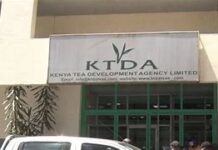The African Economic Research Consortium (AERC) has organized a conference to examine the dynamics of poverty, growth, redistribution, and social inclusion in the context of COVID-19 Pandemic in Africa.
The Fifty-sixth Bi-annual Research Workshop that will be held on a virtual platform will commence from Monday 30th May 2022 to Friday 3rd June 2022. The first day will be a plenary session and subsequently concurrent sessions will be held from Tuesday through to the end of the week.
The session will bring together researchers, academics, policymakers, non-state actors and economists to discuss the mechanisms in which Covid-19 has affected the dynamics of poverty, growth, redistribution, and social inclusion in Africa.
Speaking ahead of the Conference, AERC Executive Director Professor Njuguna Ndung’u, said the Conference will be staged under the theme: Poverty, growth, redistribution, and social inclusion in times of Covid-19 Pandemic in Africa.
The Pandemic, he said, has exacerbated trends contributing to cataclysmic effects on development progress, with millions of people in Africa pushed deeper into extreme poverty and a growing gap.
“The Pandemic has pushed millions in Africa to poverty, eradicating the gains made over the past two decades. The Conference will give us an opportunity to examine the policy options and challenges for redistribution and equal opportunities to break the persistence of inequality and promote social mobility and inclusion,” Prof. Njuguna said.
The plenary will be chaired by Prof. Finn Tarp of the University of Copenhagen. Dignitaries grazing the occasion will be Hon. Mthuli Ncube, Minister of Finance and Economic Development of Zimbabwe; Dr. Wilson Banda, Governor Reserve Bank of Malawi; Dr. Denny Kalyalya, Governor Bank of Zambia; Dr. Jane Kiringai, Chairperson Commission for Revenue Allocation (CRA) Kenya; Prof. Leonard Wantchekon of Princeton University; and Dr. Rose Ngugi, Executive Director Kenya Institute for Public Policy Research and Analysis (KIPPRA)
The Conference will feature three thought-provoking presentations delivered by lead experts and academics, they include:
– Professor Germano Mwabu, University of Nairobi, Kenya on Poverty reduction through growth, redistribution, and social inclusion in times of COVID-19 Pandemic in Africa: the underlying mechanisms.
– Dr. Kibrom Abay, Country Program Leader, and Research Fellow, IFPRI, on Revisiting poverty trends and the role of social protection systems in Africa during the COVID-19 Pandemic.
– Dr. Simone Schotte, Research Associate, UNUWIDER, on The labor market impact of COVID-19 lockdowns: Evidence from Ghana”
– Prof. Erik Thorbecke, Cornell University, on What can Africa learn from a better understanding of the interaction among growth, inequality and poverty in its fight against the Covid-19 Pandemic? ”
The Conference will pull together high-level policymakers, researchers, media, economists, academics, and non-state actors in a lively mix of speeches, panel discussions and interviews.
Follow this link to register for the conference https://aercafrica-org.zoom.us/webinar/register/WN_hd-ims7RSDuKIaU1AvlCkA























